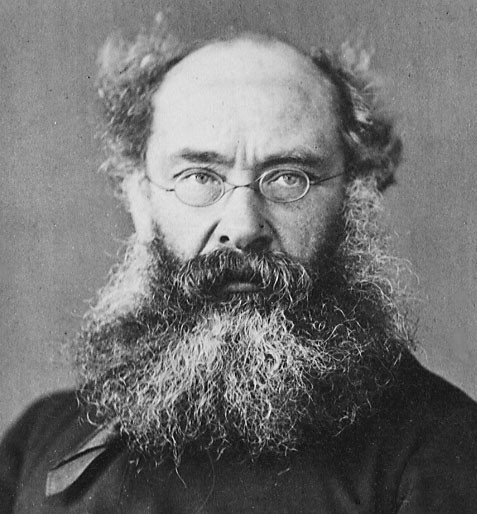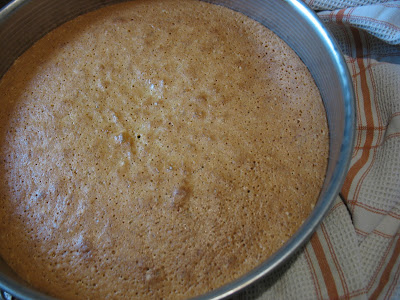This is the second post inspired by the Chronicles of Barchester with the recipe adapted, like before, from Elizabeth Acton's Modern Cookery (1845) -the most popular cookbook of the Victorian era.
Anthony Trollope was born into an impoverished noble family and suffered while in boyhood from unjust treatment by his schoolmates. His work at the Postal Services was uninspiring, too, but when he moved to Ireland, he found his vocation in writing. He applied himself so much that he wrote every day, becoming the most prolific author in England during the 19th century. At first, the British audience didn't see his novels with a keen eye because their subject matter came from Ireland but in a while he became a great favorite, especially thanks to his critique of British social order. The Chronicles of Barsetshire (1855-1867) consist of six novels and the first two were adapted for television in the early 1980s. The main theme is the English clergy and their dealings with each other.
 |
| Anthony Trollope in 1882 |
Food plays quite an important role in the TV adaptation, even if used in the background. The Warden and his daughter talk serious matters over tea and homemade cake; the Bishop's wife holds a dinner and the local squire M. Thorpe & his sister a party, with numerous sweet and savory dishes; and Miss Harding's friends, just arrived from Italy, offer candy that's served in an elegant bowl. Recipes for all of these sweets, along with the ones enjoyed by Trollope in real life, would have been found in Modern Cookery. Perhaps, the evergreen Miss Thorpe would have cared for the almond cake. Truthfully labelled a 'fine' cake, it was designed for special occasions. Even though no frosting was mentioned, the amount of ingredients was huge. The batter was also prepared in a very unorthodox way. The ground almonds were first mixed into paste, then combined with the eggs and the other ingredients, of which butter came last. So you basically started with marzipan.
Blanch, dry, and pound to the finest possible paste, eight ounces of fresh Jordan almonds, and one ounce of bitter; moisten them with a few drops of water or white of egg, to prevent their oiling; then mix with them very gradually twelve fresh eggs, which have been whisked until they are exceedingly light; throw in by degrees one pound of fine, dry, sifted sugar, and keep the mixture light by constant beating with a large wooden spoon, as the separate ingredients are added. Mix in by degrees three quarters of a pound of dried and sifted flour of the best quality; then pour gently from the sediment a pound of butter which has been just melted, but not allowed to become hot, and beat it very gradually, but very thoroughly, into the cake, letting one portion entirely disappear before another is thrown in : add the rasped or finely-grated rinds of two sound fresh lemons, fill a thickly-buttered mould rather more than half full with the mixture, and bake the cake for an hour and a half to two hours in a well-heated oven. Lay paper over the top when it is sufficiently coloured, and guard carefully against it being burned.
Jordan almonds, 1/2 lb.; bitter almonds, 1 oz.; eggs, 12; sugar, 1 lb.; flour 3/4 lb.; butter 1 lb.; rinds lemons, 2 : 1 1/2 to 2 hours.
Obs. - Three quarters of a pound of almonds may be mixed with this cake when so large a portion of them is liked, but an additional ounce or two of sugar, and one egg or more, will then be required."
Elizabeth Acton, Modern Cookery: in all its branches, reduced to a system of easy practice, for the use of private families. In a series of receipts, which have been strictly tested, and are given with the most minute exactness, Philadelphia 1845, pg 513

Comments